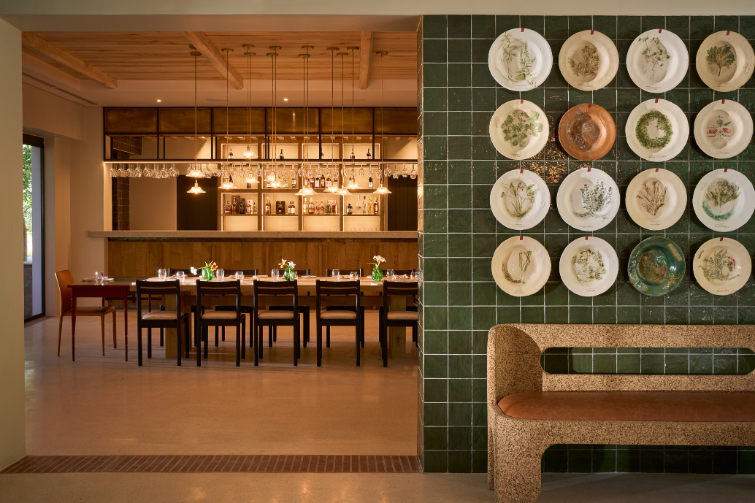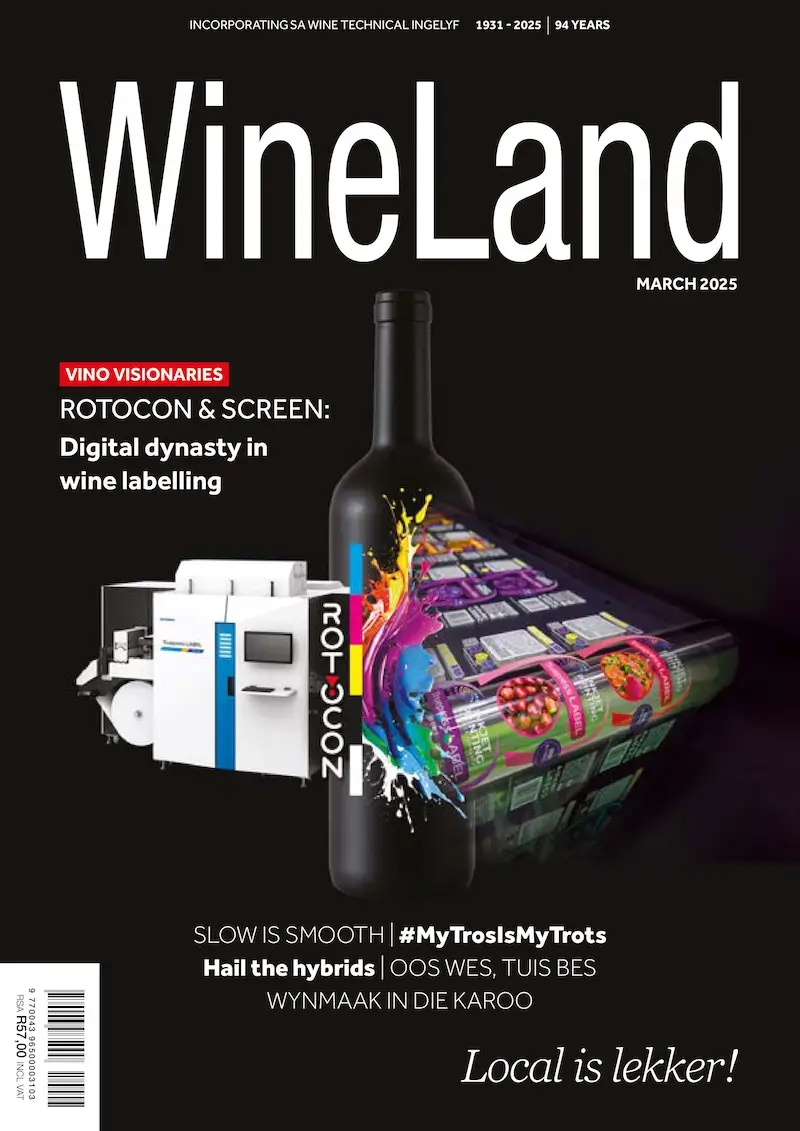While South Africans struggle to cope daily load shedding, lack of electricity has long-term implications for businesses. For many wine producers, power cuts hit them where it hurts most: in the cellar.
Like many South African wine farms, Lanzerac Estate already had their diesel generators installed when load shedding escalated to unprecedented levels this year. The challenge was to keep them running. “We’ve had to increase our diesel storage space,” says Philip le Roux, Lanzerac’s farm manager. “Because our generators have to work that much longer and more often, we could no longer stay ahead with diesel. We had to purchase bigger tanks and diesel pumps to manage it more effectively.”
The generator has mitigated most of the inconvenience of load shedding on a daily basis, but it takes extra planning to manage certain functions such as water pumps and cooling facilities during load shedding, while remaining within the generator’s capacity. They’ve managed to absorb much of the extra costs in their pricing model for now, but according to general manager Emile Langenhoven, that will have to be reconsidered in the long run.
“As South Africans we’ve all learned how to adapt as things change in the country. We see where help is needed, make a plan and manage it to the best of our ability,” Philip adds. “We’re blessed to have a wonderful team that’s always there for each other.”
A bright side
Reinhard Odendaal, winemaker and viticulturist at Aaldering, says they decided to bite the bullet and install a complete solar and battery system to meet all their energy needs. “It was a huge capital expense, but it has relieved us from having to run a generator at R6000 a day,” he says. “Since we only aim for top quality, we decided not to make any compromises.”
Installing the panels and batteries to generate and store 300 KW of electricity required a lot of space, but Aaldering now comfortably runs their cellar off-grid, even during periods of peak demand.
But the solar installation can’t assist in pumping water for irrigation, and they still have to plan that around load shedding schedules. “You can always get up earlier or go to bed later, but if I don’t know what we’d do if we didn’t have cooling.”
Since Aaldering exports most of its wines to international markets such as Europe, Asia and America, which put a premium on environmental sustainability, they could turn the solar installation to their advantage. “I even think it will benefit us in the long term,” Reinhard says.
It will be a while before the large expenses can be recovered, but fortunately Aaldering was in a position to raise prices this year. With markets like Europe experiencing their own energy crisis and rising input costs from the war in the Ukraine, Reinhard suggests the market is more sympathetic to the implications of South Africa’s energy woes and rising costs.
A spanner in the works
Nicolaas Rust, group cellar master at uniWines, oversees four different sites from farm to finished product. He doesn’t mince words. “Load shedding causes chaos at farm level, especially during ripening,” he says. “It disrupts irrigation schedules and any attempt to offload grapes at the cellar fails without electricity. You can’t receive incoming loads or register them on the system, and every activity, from receiving, to pressing to separating comes to a standstill.”
“Cooling is a crucial part of winemaking, and that’s another massive impact of load shedding. You can’t cool the water sumps to a temperature where you can control proper fermentation, and you can’t pump anything.”
The problem also extends to wastewater management, which must be tightly controlled. If cellar runoff isn’t properly treated and disposed of, it can affect sanitation standards which are very strictly regulated. “Treatment requires you to correct the pH balance, which is a mechanical action, and the treated water has to be moved to a runoff dam.”
UniWines exports 70% of its production, and that product needs to be finished, cold stabilised, pumped and filtered. “The only way for a large setup like ours to adapt is through power generators. We now have five generators spread between the four sites, with the diesel bill going through the roof. I can’t tell a contracted grower I can’t receive his grapes because I don’t have electricity; it doesn’t work that way. And I still want to make good wine from it, so I keep my pressing cellars operational at the cost of diesel, which keeps going up.”
His largest cellar has a 1000 kVA generator. Running it at the optimal 80% load uses about 180 to 200 litres of diesel an hour. The market and consumers can’t absorb this cost, and it will have to be subtracted straight from profit, says Nicolaas.
Alternative energy sources such as solar is not always feasible, especially during the three or four months of harvesting. “Solar power just wouldn’t be cost-effective; you need lots of roof space, and to run at night you need just as many batteries.”
Nicolaas has however taken his weigh bridges of the grid using inverters and batteries. “That takes the load of the generators, but once again, it cost R40 000-R50 000 per installation. It’s not an amount you can recover quickly.”
It’s unclear how much aid Government will provide and such assistance often brings its own complications. To top it off, what is supplied is sometimes unreliable and unstable. “I recently had to run the generators three days in a row because the substation provided electricity that was undervoltage and would just damage my equipment.”
Aaldering’s state-of-the-art solar, inverter and battery installation was completed in December 2022.
The hidden cost
Eventually, effectively dealing with load shedding usually ends with someone having to get up at all hours of the night to switch over the power supply from Eskom lines to generators and back.
This process can’t be automated for high loads, says Nicolaas. “The automated system would risk ruining your equipment and damaging the generators. It can happen very quickly if the generator takes strain. You almost need another set of winemakers just to manage the process.”
UniWines have been able to keep up with Eskom’s schedules without a hitch so far, but there’s a hidden cost, warns Nicolaas. “It has a significant impact on morale. You have tired, irritated winemakers who don’t get enough rest. It’s a massive responsibility that rests on their shoulders.”
And considering the strategic value and sheer cost of the equipment – an average-sized generator can cost at least R4-5 million – it’s not a responsibility that can easily be delegated to anyone else.
The continued uncertainty and unprecedented scale of the crisis has made it hard to plan or budget for expenses. With the constant turmoil surrounding the power utility, even local officials themselves don’t know what to expect and aren’t in a position to offer assurances. What happens if things don’t improve? “We’ll probably keep on crushing,” says Nicolaas, “but it might go from 2200 tonnes per day to 200 tonnes, which means somewhere a producer will lose his harvest because we can’t take it in. I don’t even want to think about it.”















